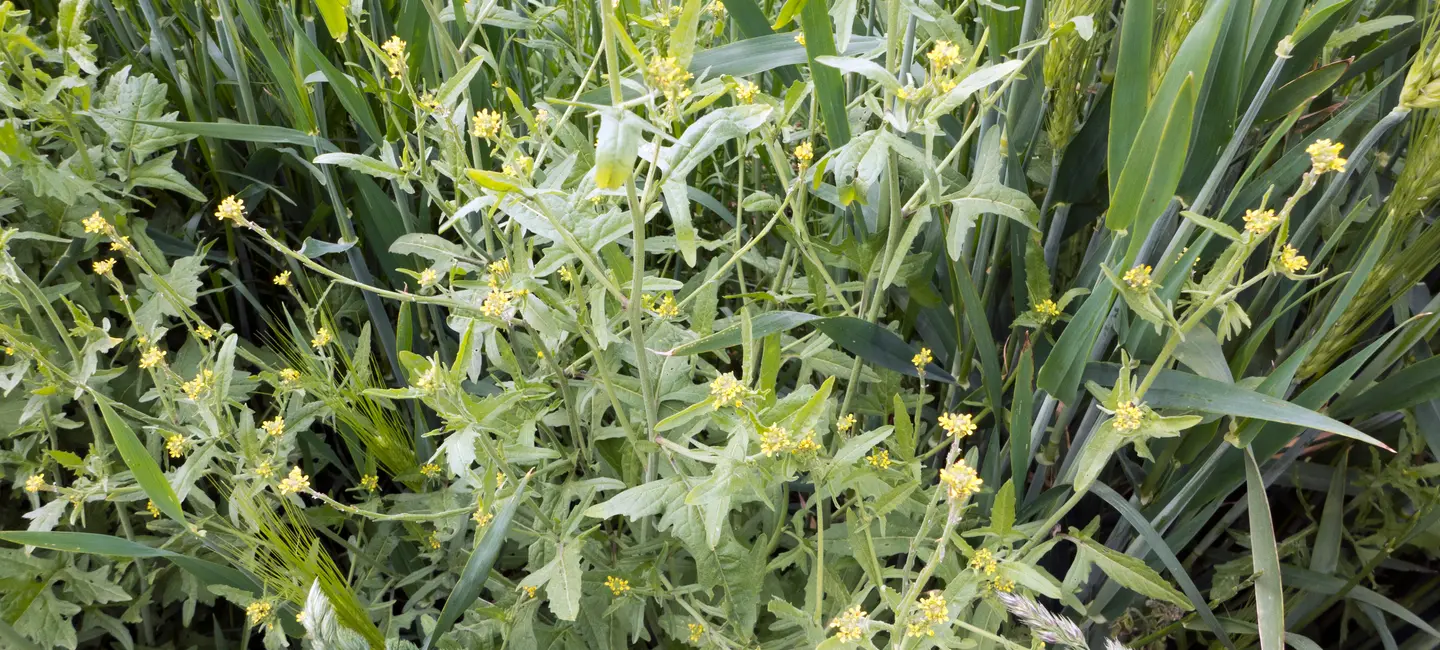
Hedge mustard (Sisymbrium officinale) is a plant found in Europe, Asia, and Africa. The leaves, stems, and flowers are used as medicine.
Hedge mustard extract might have antioxidant effects.
People use hedge mustard for many purposes, but there is no good scientific evidence to support these uses. Hedge mustard might also be unsafe.
Don't confuse hedge mustard with other types of mustard, such as black mustard, Clown's mustard plant, and white mustard. These are not the same.
Is It Effective?
There is interest in using hedge mustard for a number of purposes, but there isn't enough reliable information to say whether it might be helpful.
Is it Safe?
When taken by mouth: The flowering above-ground parts of hedge mustard are possibly unsafe. Hedge mustard contains chemicals called cardiac glycosides that can cause serious side effects, including vomiting, diarrhea, and heart rhythm disorders.
When applied to the skin: There isn't enough reliable information to know if hedge mustard is safe or what the side effects might be.
Special Precautions & Warnings:
Pregnancy and breast-feeding: Hedge mustard is possibly unsafe when used while pregnant or breast-feeding. It can affect the heart and cause other harm. Avoid use.
Heart disease: Hedge mustard contains chemicals called cardiac glycosides that might make heart disease worse or interfere with treatment. Avoid use.
Low levels of potassium: Hedge mustard contains chemicals called cardiac glycosides. These chemicals can harm the heart, especially in people with low potassium levels.
Antibiotics (Macrolide antibiotics)
Interaction Rating=Moderate Be cautious with this combination.
Taking hedge mustard along with macrolide antibiotics might increase the effects and side effects of hedge mustard.
Antibiotics (Tetracycline antibiotics)
Interaction Rating=Moderate Be cautious with this combination.
Taking hedge mustard along with tetracycline antibiotics might increase the chance of side effects from hedge mustard.
Digoxin (Lanoxin)
Interaction Rating=Moderate Be cautious with this combination.
Digoxin helps the heart beat more strongly. Hedge mustard might also affect the heart. Taking hedge mustard along with digoxin might increase the effects and side effects of digoxin.
Quinine
Interaction Rating=Moderate Be cautious with this combination.
Hedge mustard might affect the heart. Quinine can also affect the heart. Taking quinine along with hedge mustard might increase the risk of side effects.
Stimulant laxatives
Interaction Rating=Moderate Be cautious with this combination.
Hedge mustard might affect the heart. Stimulant laxatives can cause diarrhea and decrease potassium levels. Low potassium levels can also affect the heart. Taking these products together can increase the risk of side effects.
Water pills (Diuretic drugs)
Interaction Rating=Moderate Be cautious with this combination.
Hedge mustard might affect the heart. "Water pills" can decrease potassium levels. Low potassium levels can also affect the heart. Taking these products together can increase the risk of side effects.
Herbs that contain cardiac glycosides: Hedge mustard contains chemicals that can affect the heart. These chemicals are called cardiac glycosides. Using it along with other supplements that also contain cardiac glycosides can increase the risk of heart damage. Examples of supplements that contain cardiac glycosides include black hellebore, foxglove, lily-of-the-valley, oleander, and pleurisy root.
Horsetail: Hedge mustard contains chemicals called cardiac glycosides. Cardiac glycosides can cause the body to lose too much potassium, and this can harm the heart. Horsetail increases the production of urine and this can cause the body to lose potassium. Using horsetail with cardiac glycoside-containing herbs such as hedge mustard increases the risk of losing too much potassium and increases the risk of heart damage.
Licorice: Hedge mustard contains chemicals called cardiac glycosides. Cardiac glycosides can cause the body to lose too much potassium, and this can harm the heart. Licorice also causes the body to lose potassium. Using licorice with cardiac glycoside-containing herbs such as hedge mustard increases the risk of losing too much potassium and increases the risk of heart damage.
Stimulant laxative herbs: Hedge mustard contains chemicals called cardiac glycosides. Cardiac glycosides can cause the body to lose too much potassium. Stimulant laxatives can cause diarrhea, which can also decrease potassium levels. Taking hedge mustard along with stimulant laxatives might make potassium levels drop too low. Examples of supplements with this effect include aloe, alder buckthorn, rhubarb, and senna.
There are no known interactions with foods.
There isn't enough reliable information to know what an appropriate dose of hedge mustard might be. Keep in mind that natural products are not always necessarily safe and dosages can be important. Be sure to follow relevant directions on product labels and consult a healthcare professional before using.
English Watercress, Erísimo, Erysimum, Erysimum officinale, Herbe au Chanvre, Moutarde des Haies, Singer's Plant, Sisymbre, Sisymbre Officinal, Sisymbrium officinale, St. Barbara's Hedge Mustard, Thalictroc, Vélar, Vélar Officinal.
Information on this website is for informational use only and is not intended to replace professional medical advice, diagnosis, or treatment. While evidence-based, it is not guaranteed to be error-free and is not intended to meet any particular user’s needs or requirements or to cover all possible uses, safety concerns, interactions, outcomes, or adverse effects. Always check with your doctor or other medical professional before making healthcare decisions (including taking any medication) and do not delay or disregard seeking medical advice or treatment based on any information displayed on this website.
© TRC Healthcare 2024. All rights reserved. Use and/or distribution is permitted only pursuant to a valid license or other permission from TRC Healthcare.
